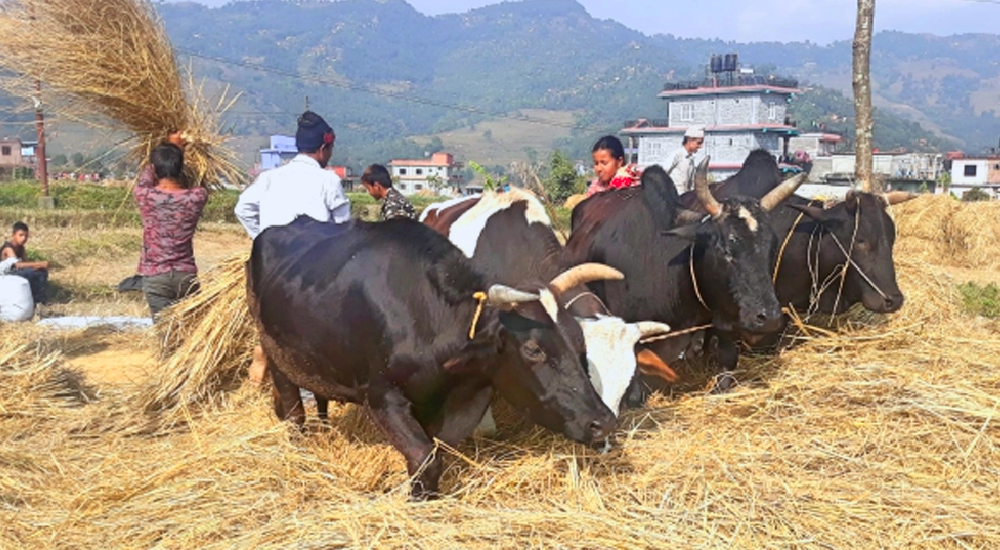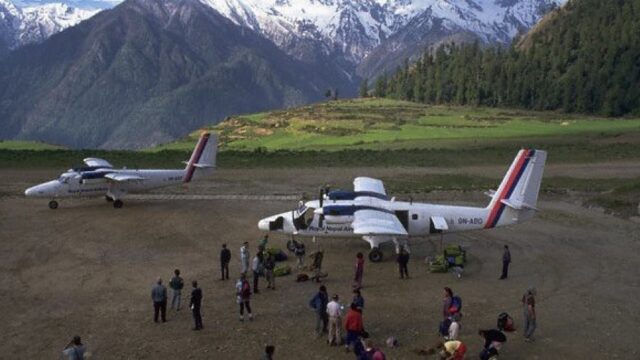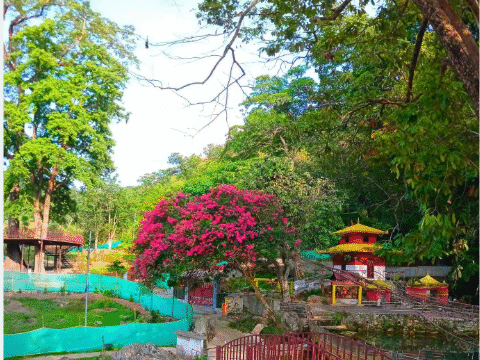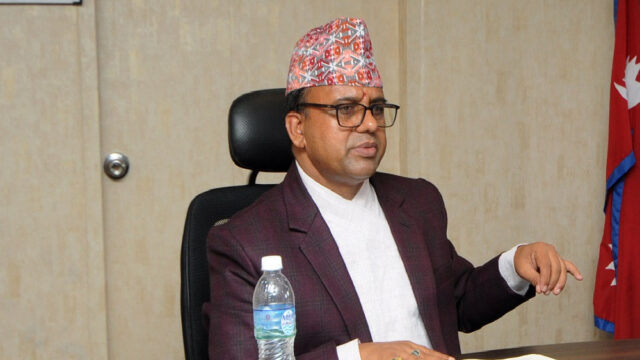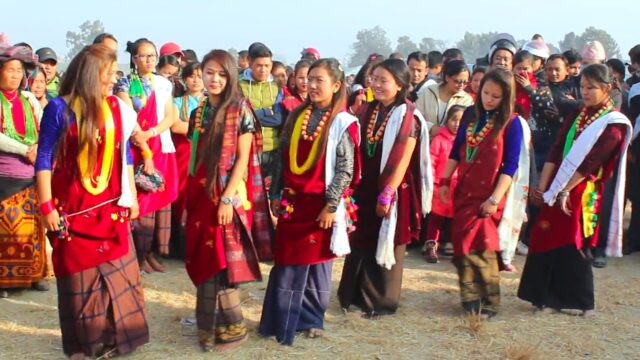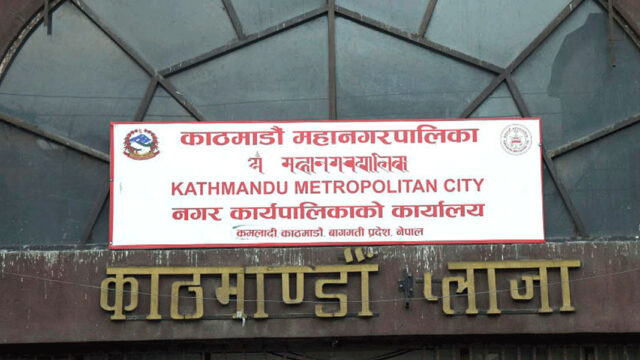The much-anticipated Traditional Daai Festival has officially commenced in Pokhara with the aim of introducing the younger generation and international tourists to Nepal’s traditional agricultural practices. The event, organized by the Pokhara Tourism Council, focuses on promoting Pokhara as an attractive destination under the theme, “Pokhara for All Seasons.”
The festival, held at Fewa Faat in Pokhara Metropolitan-23, highlights the post-harvest activity of daai—harvesting rice planted during the monsoon season. By involving tourists and youth, the event aims to preserve and promote this cultural tradition, as stated by Pokhara Tourism Council President Taranath Pahari. According to Pahari, international visitors will experience Nepal’s traditional farming techniques and immerse themselves in an authentic cultural celebration.
“Amidst Pokhara’s growing urbanization and changing local lifestyles, this festival seeks to transfer knowledge of traditional farming systems to future generations,” Pahari remarked.
The council has long been organizing an annual Ropain Mahotsav (rice plantation festival) during the monsoon, celebrating Nepal’s agrarian heritage through activities such as planting rice, singing traditional Asare Bhaka, and enjoying dahi chiura (curd and beaten rice). This inaugural Daai Festival extends those efforts to protect arable land and revive agricultural traditions, particularly at a time when land fragmentation has negatively impacted productivity. The festival’s success is expected to contribute to these preservation efforts, noted the council’s General Secretary, Jeevan Raj Sapkota.
The event also aims to position Pokhara and the Gandaki Province as premier destinations for both domestic and international tourists, emphasizing its appeal as a year-round travel hotspot. By encouraging farmers and inspiring them to take pride in their profession, the festival aspires to promote sustainable agriculture alongside tourism.
With its blend of cultural preservation and tourism promotion, the Daai Festival is poised to become a key attraction in Nepal’s tourism calendar.
